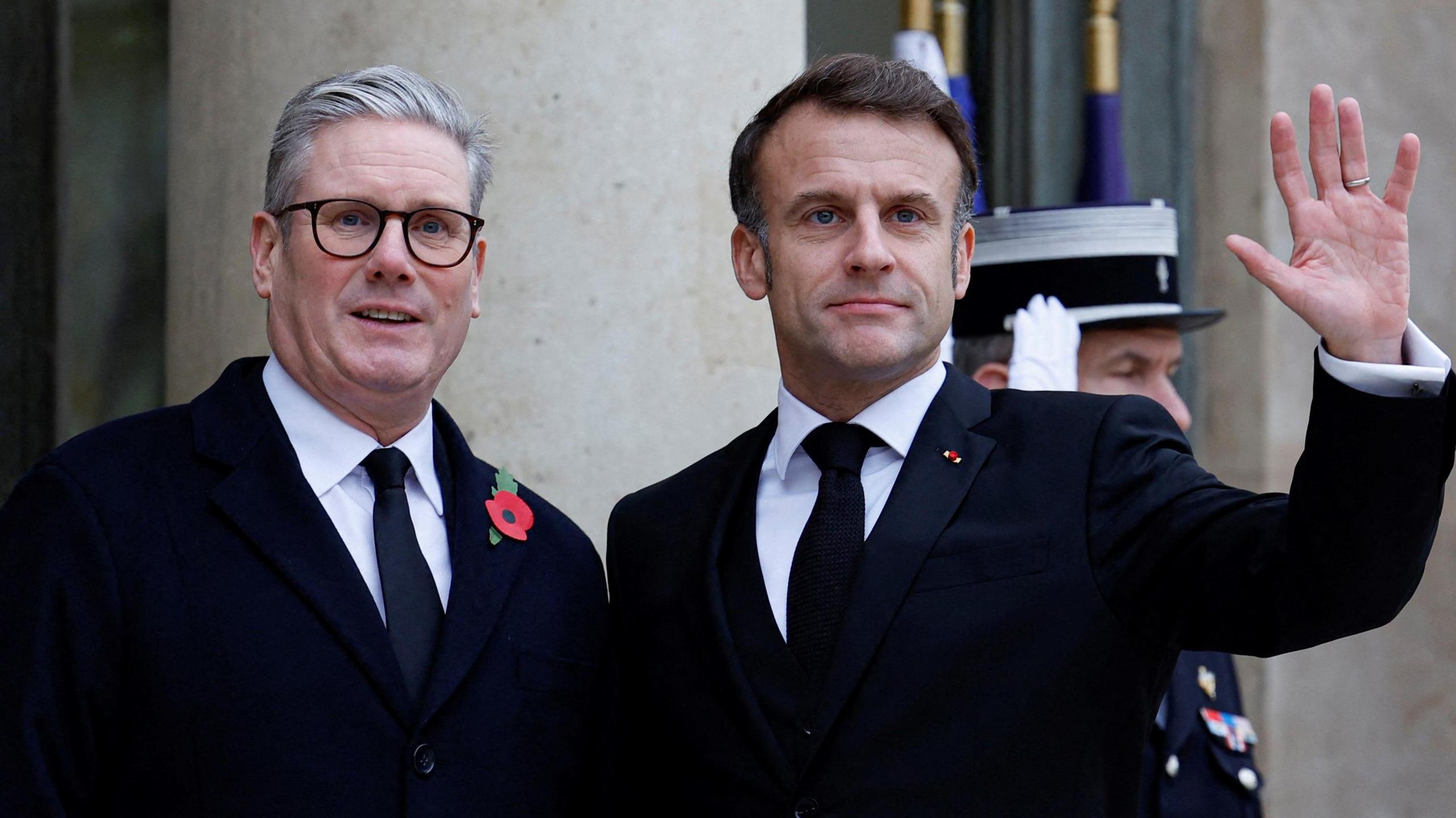British Prime Minister Keir Starmer and French President Emmanuel Macron have agreed to deliver a unified message on Ukraine during their meetings with US President Donald Trump this week, The Times reported on 24 February.
The coordinated diplomatic effort comes as Trump has indicated willingness to negotiate directly with Moscow to end the war in Ukraine, now in its third year. The US delegation has already met with the Russian one in Saudi Arabia on 18 February, which resulted in a proposed three-step peace plan: first, a ceasefire, followed by elections in Ukraine, and then a final agreement.
Senior diplomatic sources said the two official would each try to persuade Trump not to pursue bilateral peace negotiations with Moscow, in return for European commitments to Ukraine’s future security, The Times reported.
Macron will meet with Trump on 24 February, while Starmer’s meeting is scheduled for 27 February in Washington.
The British and French leaders have described the current situation as a “crucial moment” for global security. Their coordinated approach follows consultations with European Commission President Ursula von der Leyen.
British Security Minister Dan Jarvis has made controversial statements about Russia potentially rejoining the G7.
“That will be a matter to be discussed with international allies. And that is a matter that no doubt will be considered at the point at which the conflict in Ukraine has been concluded,” when asked if Russia should be allowed to join, Jarvis told Times Radio.
The US President claimed earlier to lift some restrictions for Russia on the diplomatic front, in particular, returning Russia to the G7, calling the country’s exclusion in 2014 a “mistake.”
Jarvis also confirmed that Starmer would be “discussing these matters with the president later this week” as part of diplomatic efforts to end the war.
The diplomatic push occurs against the backdrop of conflicting signals from Trump’s administration regarding Ukraine. US Defense Secretary Pete Hegseth declined to explicitly blame Russia for starting the war, telling Fox News: “Standing here and saying, ‘You’re good, you’re bad; you’re a dictator, you’re not a dictator; you invaded, you didn’t.’ It’s not useful. It’s not productive.”
When asked directly if Russia invaded Ukraine unprovoked three years ago, Hegseth called it “a very complicated situation.”
Trump’s special envoy Steve Witkoff went further on CNN, stating: “The war didn’t need to happen, it was provoked. That doesn’t necessarily mean it was provoked by the Russians. There were all kinds of conversations back then about Ukraine joining NATO… That didn’t need to happen, it basically became a threat to the Russians… Those are real facts.”
Britain is also announcing new sanctions against Russia, banning all senior Russian politicians, officials, and businessmen from traveling to the UK.
Read also:
- Ceasefire without security guarantees will fail like Minsk agreements, Macron warns
- Macron had “frank conversation” with Trump minutes before the EU emergency summit began
- Starmer open to deploying British troops to Ukraine as US support uncertainty grows
- Ukraine Intelligence: Russia exploits US-Russia talks for psychological warfare




